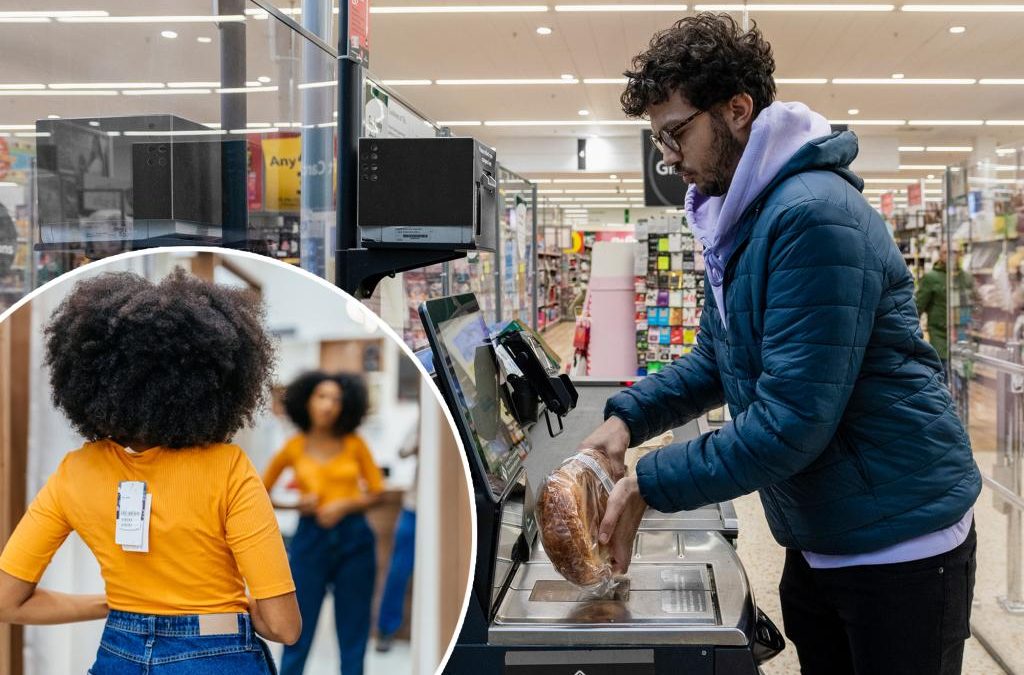They’re not so you can “check yourself out.”
Amid the increasing number of self-service check-out stations cropping up at grocery stores and other vendors, companies have devised a unique measure to deter potential shoplifters — mirrors.
The method was first detailed in a Mashable article last year but has gone viral recently amid an uptick in thefts affecting grocery stores nationwide.
Initially assumed it was used to ensure shoppers look good before checking out, these reflective devices are actually there to make prospective pilferers feel guilty.
This might sound ineffective on its face as robbers would presumably just steal with no one monitoring their actions.
However, mirrors are been psychologically proven to make people feel guilty (no word as to whether they’re effective at facilitating “guilt tipping” as well).
According to a 1976 study published in the journal “Letters on Behavioral Evolutionary Science,” people who are in a “self-aware” situation such as in front of a mirror are less likely to engage in “antinormative behavior” like stealing or cheating than those who are not.
When participants were subjected to mirrors, their “private self-awareness was activated” and influenced “decision-making” despite the lack of social cues.
“These results suggest that socially desirable behavior is influenced by mirrors,” they write.
However, the study authors admit that the mechanism behind self-awareness’ effect on behavior is not well understood — perhaps the mirror makes people “reflect” on the crime before even committing it.
Psychology Today postulated that mirrors “allowed people literally to watch over themselves” and therefore “made them more likely to behave in a more upright way.”
Grocery stores have, perhaps understandably, never actually addressed the mirror measure, presumably to refrain from tipping off potential shoplifters.
In general, experts argue that mirrors aren’t enough to prevent shoplifting at self-checkouts, which are notoriously susceptible to theft due to the lack of personnel.
Scams have included weighing meat as fruit, and even scanning bootleg barcodes attached to people’s wrists before walking out sans paying, Tellermate reported.
“If you had a retail store where 50% of transactions were through self-checkout, losses would be 77% higher than average,” declared Adrian Beck, a professor emeritus at the University of Leicester in the UK who specializes in retail losses.
Theft isn’t the only problem plaguing the self-checkout sector.
Studies show that these automated kiosks make people lonelier and less empathetic due to the lack of human interaction while one lawyer warns that stores use them to frame innocent patrons for stealing.
Some have even accused self-checkouts of “stealing” from customers via “guilt tipping,” aka giving customers the option to leave up to a 25% gratuity for servicing themselves.
Source




